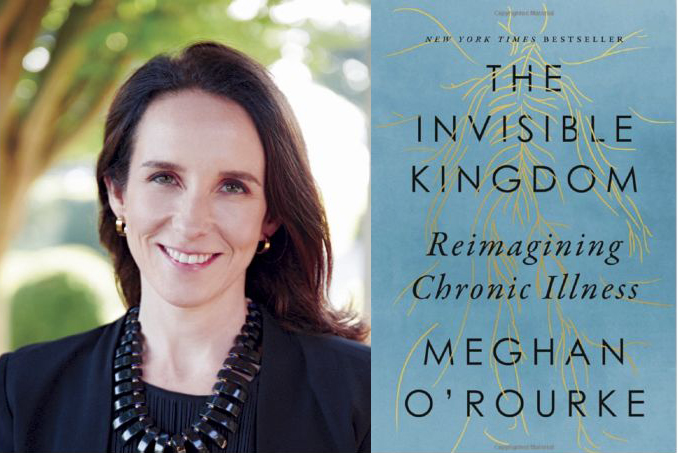Nursing Book Club
The Invisible Kingdom: Reimagining Chronic Illness by Meghan O’Rourke
The personal and social impact of unexplained and chronic conditions

It can be difficult to separate our physical condition from our psychological or emotional state. Symptoms like fatigue, headache, and digestive upset can indicate anything from viral infection to too much stress and too little sleep, and after a while, we can easily lose track of how long the symptoms have been going on.
That’s why author Meghan O’Rourke can’t say for certain when her chronic illness began, although she offers several possibilities. Her illness might have begun after her college graduation and all the life changes that entailed, or in the wake of a viral infection she suffered after her mother died. Her health may also have taken a turn after she developed a rash on a beach vacation several years later.
Whenever it began, she suffered for years from symptoms of a mysterious illness for which no doctor was able to offer a diagnosis or any treatment that really helped. She became desperate in her search for a practitioner who could help her, going far afield of mainstream medicine in search of answers.
O’Rourke’s illness was ultimately diagnosed as Hashimoto’s thyroiditis and chronic Lyme disease. Lyme disease is a bacterial infection caused by a spirochete transferred from a tick bite to the victim’s bloodstream. Caught early, it can be cured with antibiotics, but in later stages, it can cause debilitating and long-lasting illness that doctors admit they still don’t fully understand.


